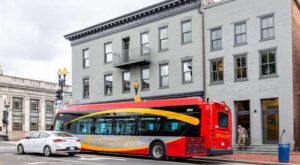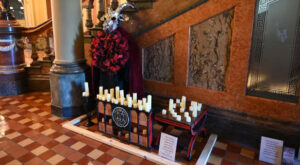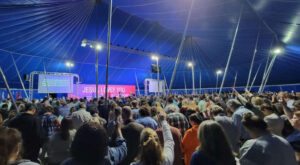In his letter to Timothy, Paul tells him that elders who rule well should receive a “double honor”; in the same breath, he warns Timothy that no elder should be accused of wrongdoing unless there is evidence from two or three witnesses (1 Tim. 5:17–19). He follows his instruction with a surprising saying: “I command you before God and the Lord Jesus Christ and the elect angels that you observe these things without prejudice, doing nothing by partiality” (1 Tim. 5:21). Why is Paul so concerned with rewarding or admonishing elders? And why does he need to invoke God, Christ Jesus and the elect angels?
Charges
Paul uses these commands, or charges, throughout his letters (1 Tim. 6:11–16, Rom 12:1–2, 1 Cor 1:10, Eph 4:17). His charges typically begin with a strong appeal, such as “I charge,” “I exhort” or “I urge,” followed by the name of the person charged (in this case, Timothy). Before concluding his charge with a call to action, Paul inserts a phrase that identifies the authority of the charge—a way to underscore its solemnity or importance.
Because false teachers were teaching strange doctrines in the Ephesian church, Paul wants to honor and recognize those who properly handle their responsibilities—who teach sound doctrine and display good leadership. He appeals to the Old Testament to make his point: “You shall not muzzle the ox that treads out grain” (1 Tim. 5:18; compare Deu.t 25:4). Animals who were threshing grain were often allowed to stop and eat the crop. In the same way, elders who lead well need to be properly compensated for their work. Paul also wants to rebuke bad leaders. Accusations brought against elders who are not fulfilling their obligations have to be properly attested by two or three witnesses (1 Tim. 5:20; compare Matt 18:15–19).
Why the Elect Angels?
We can understand the importance of this command for Timothy, but why does Paul invoke “the elect angels”? Typically, his charges don’t include this addition.
Appealing to angels as witnesses would not be an unfamiliar move for Paul’s audience. We find similar language in the Testament of Levi, a pseudepigraphal writing from the intertestamental period (ca. 600–160 BC). In this text, Levi, a patriarch, presents his descendants with a choice using language very similar to Paul’s: “Choose for yourselves light or darkness, the Law of the Lord or the works of Beliar (the Devil).” When Levi’s children choose the Law of the Lord, he responds: “The Lord is my witness, and his angels are witnesses, and you are witnesses, and I am witness concerning the word from your mouth” (Testament of Levi 19:1–4).
Levi underscores the seriousness of their choice by reminding them that their testimony is heard by the Lord and His angels. The implication: They cannot hide from their decision or feign ignorance. They will also be held accountable.
The same response is expected from Timothy. This is not simply Paul’s command. Timothy has the heavenly host as witness to his actions, but he also has their authority to accomplish this task (compare Heb. 2:9).
Why It All Matters
Paul’s goal is a healthy Ephesian church. Although Paul entrusts Timothy with a serious and difficult task, Timothy can be confident that he has the ability and the authority to do it. He has all of heaven as witness and authority.
In the same way, we’re enabled to do the difficult work that God has called us to do for the expansion of His kingdom—even when it seems difficult to do so. When we take up that task faithfully, we can better proclaim Christ and His kingdom. {eoa}
Article courtesy of Bible Study Magazine published by Faithlife Corporation. Originally published in print, Vol. 4 No. 6
See an error in this article?
To contact us or to submit an article


















